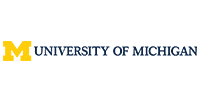
This course aims to teach everyone the basics of programming computers using Python. We cover the basics of how one constructs a program from a series of simple instructions in Python. The course has no pre-requisites and avoids all but the simplest mathematics. Anyone with moderate computer experience should be able to master the materials in this course. This course will cover Chapters 1-5 of the textbook "Python for Everybody". Once a student completes this course, they will be ready to take more advanced programming courses. This course covers Python 3.
Read more
This course aims to teach everyone the basics of programming computers using Python. We cover the basics of how one constructs a program from a series of simple instructions in Python. The course has no pre-requisites and avoids all but the simplest mathematics. Anyone with moderate computer experience should be able to master the materials in this course. This course will cover Chapters 1-5 of the textbook "Python for Everybody". Once a student completes this course, they will be ready to take more advanced programming courses. This course covers Python 3.
This course aims to teach everyone the basics of programming computers using Python. We cover the basics of how one constructs a program from a series of simple instructions in Python. The course has no pre-requisites and avoids all but the simplest mathematics. Anyone with moderate computer experience should be able to master the materials in this course. This course will cover Chapters 1-5 of the textbook "Python for Everybody". Once a student completes this course, they will be ready to take more advanced programming courses. This course covers Python 3.
What you'll learn
- What is a program?
- Using variables in programs
- Conditional execution (if statements)
- Repeated execution / looping (for statements)
- Functions and code reuse
What's inside
Learning objectives
- What is a program?
- Using variables in programs
- Conditional execution (if statements)
- Repeated execution / looping (for statements)
- Functions and code reuse
- What is a program?
- Using variables in programs
- Conditional execution (if statements)
- Repeated execution / looping (for statements)
- Functions and code reuse
Good to know
Save this course
Reviews summary
Well-received python introductory course
Activities
Read "Python Crash Course, 2nd Edition"
Show steps
Will help you get started with Python and provide a solid foundation for the course.
View
Python Crash Course, 2nd Edition: A Hands-On,...
on Amazon
Show steps
-
Read Chapters 1-5
-
Complete the exercises at the end of each chapter
Show all one activities
Read "Python Crash Course, 2nd Edition"
Show steps
Will help you get started with Python and provide a solid foundation for the course.
View
Python Crash Course, 2nd Edition: A Hands-On,...
on Amazon
Show steps
- Read Chapters 1-5
- Complete the exercises at the end of each chapter
Career center
Data Scientist
Software Engineer
Data Analyst
Web Developer
Machine Learning Engineer
Business Analyst
Statistician
Financial Analyst
Operations Research Analyst
Actuary
Market Research Analyst
Quantitative Analyst
Biostatistician
Epidemiologist
Data Journalist
Reading list
Share
Similar courses
OpenCourser helps millions of learners each year. People visit us to learn workspace skills, ace their exams, and nurture their curiosity.
Our extensive catalog contains over 50,000 courses and twice as many books. Browse by search, by topic, or even by career interests. We'll match you to the right resources quickly.
Find this site helpful? Tell a friend about us.
We're supported by our community of learners. When you purchase or subscribe to courses and programs or purchase books, we may earn a commission from our partners.
Your purchases help us maintain our catalog and keep our servers humming without ads.
Thank you for supporting OpenCourser.



